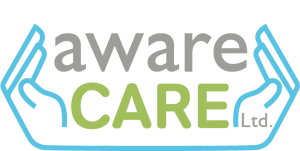Provision for domiciliary care can be arranged privately (by yourself or your family) or through the NHS or local authority social services department. With the cost of 24 hour care rising, the option to remain in your own home with a suitable package of personal care, is often the best financial option.
Privately Funded
This means that you pay for the care you receive from our company. We will provide you with a detailed account for the cost of your care – there will be no hidden extras. Accounts will be sent to you on a weekly basis. The account can be paid in cash, by cheque, debit card or bank transfer.
Personal Independence Payment
If you are an adult under the age of 65, you could be entitled to claim Personal Independence Payment (PIP), which will assist you to pay for your care support costs caused by long term ill health or disability. The amount you receive is determined by an assessment – you will need to apply for this and information is available at www.gov.uk/pip
Attendance Allowance
Attendance Allowance is a benefit that helps with the extra costs of long-term illness or disability, which can be either physical and/or mental. It is for people aged 65 and over. It is a tax-free benefit paid regardless of your income or savings. Getting an attendance allowance does not reduce other benefits. There are no restrictions as to how you spend your attendance allowance. In order to receive attendance allowance, you must be 65 years or over, and need help to look after yourself due to illness or disability which has gone on for 6 months or more. If you are terminally ill the rules relating to receipt of attendance allowance are much simpler.
Attendance allowance is calculated according to the amount of care you require and when you need it, for example, daytime, night time or both. It is paid at two rates known as lower and higher – the amount paid in 2018/2019 is as follows: Lower rate £57.30 per week and Higher rate £85.60 per week. Carersuk.org
Local Authority
Your Local Authority has specially trained staff who can help you by assessing the level and type of care you need, and advising on how to go about arranging it. They can do this for you whether or not you would pay for your care yourself. If you are likely to need financial help towards your care costs, then your Local Authority will need to carry out the assessment first, before going on to consider your financial situation. The assessment process differs slightly between Local Authorities, but will usually involve a home visit by an assessor. They will go through a list of questions designed to establish what your specific difficulties are, and what might help you overcome them. They will also ask you about how much and what help you think would be useful to you, to get an idea of your preferences.
NHS Continuing Health Care
If you are eligible the NHS can fund part or all of your health care and local authorities can fund part or all of your social and personal care. To be eligible for NHS continuing health care, you must be assessed as having a “primary need” and have a complex medical condition and substantial on-going care needs. You will need to be assessed. Eligibility is not dependent on your financial situation. For further information visit the NHS website www.nhs.uk

